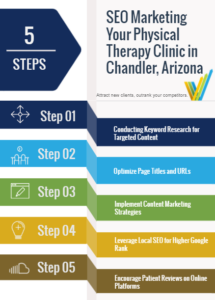Managing content on your website can be challenging if you don’t have a developer on staff. Without some basic coding knowledge, building a website can be time-consuming and tedious. That’s why you need an all-in-one CMS solution.
A comprehensive CMS solution gives you the tools you need to register your domain, host your site, and build it without any extensive coding skills. Even with research and planning, it’s common to outgrow your CMS. That’s when you need to make a change.
Migrating to a new CMS can present problems if not done correctly. Before you switch to a new content management system, consider your options and review these common mistakes to avoid.
Why Do You Need to Switch to a New CMS?
Once your website is built, it’s easy to leave it alone. The content is already available, you know how the system works, and people are already familiar with the layout of your site.
That said, a new CMS can make it more efficient for you to drive traffic and connect with potential customers. Common reasons you might consider switching to a new CMS include:
- Better user experience: Your customer’s site experience is crucial to keeping visitors on your website. The right CMS allows you to create compelling websites with drag-and-drop editors.
- Easier content management: Whether you’re creating landing pages or building an SEO blog, a content management system should make it simple and efficient to add various media.
- Robust domain support: Some CMS solutions let you create a website on their platform, but to expand your presence, you’ll want a CMS that offers several domain support options.
Choosing the right CMS takes time, and it can be hard to narrow down the right one for your business given the many options available.
The 10 Mistakes to Avoid When Migrating to a New CMS
As the platform for your entire website, you want to make the best decision for your CMS solution. We put together the 10 most common mistakes people make when they migrate to a new CMS.
1. Choosing the First CMS You Demo
There are dozens of CMS solutions for businesses of all sizes. One of the most common mistakes you can make when migrating to a new CMS is choosing the first platform you research.
Research a few options that make sense for your business (think about your industry, annual sales, and the number of customers) and compare their features to decide which solution is best.
2. Reading Through Part of the Documentation
Another common mistake that you might make in the beginning is reading part of the documentation rather than all of it. This means you could miss critical issues and features.
Read all the documentation while you’re comparing features so you know if there will be potential setbacks for your migration.
3. Not Asking the Right Questions
Once you’ve read through the appropriate documentation and have narrowed down your options, you’ll likely still have unanswered questions.
Write down a list of questions as you go through the research process. Pose these questions to your top three solutions before deciding on a CMS.
4. Subscribing to the Least Expensive Plan
Migrating to a new CMS has costs, but one common mistake people make is choosing the cheapest plan for their new platform.
This means you might not have access to the full suite of features that made the CMS more compelling in the first place.
5. Exporting Old CMS Data Without a Strategy
One of the biggest steps in migrating to a new CMS is exporting your old data before you transfer it. You need to have a plan for how and where you store this data, though.
Create a digital filing system and make copies of the files so you can edit them later. This will be essential when you need to import them in the future.
6. Not Backing Up Old Data
Your CMS data is critical. It is – quite literally – your entire website. That means you need to back up the data and keep files stored in more than one place.
You should also keep this data backed up after the transition. You may find kinks in the system that need to be worked out before you seal up the migration.
7. Trying to Do It All Yourself
If you have a relatively streamlined website without a lot of content, you might be able to migrate to a new CMS on your own. More robust websites will take more work, though.
In general, most CMS solutions offer services for migrating to their platform. A common mistake businesses make is not taking advantage of these services.
8. Not Effectively Training Your Team
After you switch to a new CMS, you need to train your team on the platform. Without this critical step, you risk data loss and frustrated colleagues.
Every CMS has a knowledgebase or open-source documentation that provides training on their tools. Invest time in putting together a plan for your team.
9. Using an “Out of the Box” Approach
While most CMS solutions make it simple for you to set up a website, using an “out of the box” approach means your website might be missing key elements.
Capitalize on your customization options and find ways to make your website unique. This might include some minor coding, though most CMS solutions make it easier than that.
10. Importing Old CMS Data Incorrectly
Perhaps the most important part of migrating to a new CMS is ensuring that your old data is imported correctly. If you don’t, you could have serious errors in where data is located.
Determine exactly how the import spreadsheet needs to be set up, then put together your documents accurately to prevent any problems.
How to Get Started with a New CMS
Once you’ve decided that you need a new CMS, it’s just a matter of doing the work. Research the best options for your business, back up your data in multiple places, and reach out to a team that can help you with your SEO, website maintenance, and content needs.
Looking for a team of expert SEO professionals? Visual Rankings can help you create the content you need for a website that drives traffic and growth.






